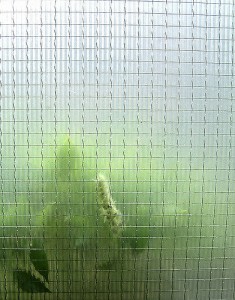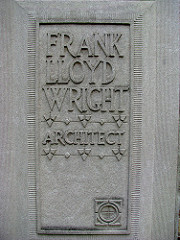Wired Glass: Safe or not?
You’ve seen wired glass. It’s used in doors and windows, and has an open wire mesh built into it. Many people assume that it’s safety glass, but it’s not. According to the Consumer Product Safety Commission, traditional wired glass doesn’t meet the organization’s glass safety impact standard.
Wired glass isn’t safety glass
In the late 1970’s, the CPSC determined that wired glass posed a serious danger and imposed size restrictions on its use. The size restrictions recognized that the glass had a very limited ability to survive impact stresses. The glass, which is weaker than safety glass, wasn’t banned outright because at the time the rule was made, wired glass was the only fire-rated glass product on the market. Because of this, wired glass was granted a compliance exemption for impact strength, specifically for academic and athletic applications.
By the early 2000’s, new safety glass had become widely available, and traditional wired glass lost its impact strength exemption. Any replacement glass in these locations had to meet the new strength requirements, and glass used in athletic environments had to meet an even more stringent safety standard. Traditional wired glass can be used as door lights, as long as it does not exceed the maximum size limits allowed by the CPSC standard.
The debate about wired glass is not about its relative safety in a fire. Wired glass – especially traditional wired glass – is weaker than regular glass and was installed liberally in schools, largely for its fire rating. Unfortunately, wired glass is responsible for more than 2,500 injuries annually in schools alone. Most injuries occur when a child accidentally impacts the window and the glass breaks.
School building codes do not permit the installation of traditional wired glass in certain areas, and limits the permissible size of wired glass windows in other locations. At the same time, building codes do not require the glass to be removed, either. Generally speaking, insurers and building inspectors recommend that wired glass be removed from areas where impacts are possible or likely.
Alternatives to wired glass exist, including a wired glass that incorporates a safety film. The film improves the impact resistance of glass and reduces the potential for serious injury in the event of a catastrophic impact. Other fire rated options that are more aesthetically pleasing are also available.
At GlassPaint.com, we can’t offer an improved safety rating, but we can definitely improve the aesthetics of glass. Glassprimer™ glass paint is specially engineered to bond to the surface of glass. Once cured, Glassprimer™ glass paint is permanent, and resists UV light damage, chipping, peeling and fading. We can also match any palette from any major paint manufacturer. If you’d like more information about Glassprimer™ glass paint, please visit the rest of our site. If you’d like to purchase Glassprimer™ glass paint, please visit our online store .
Photo Credit: Frank Servayge , via Flickr.com



